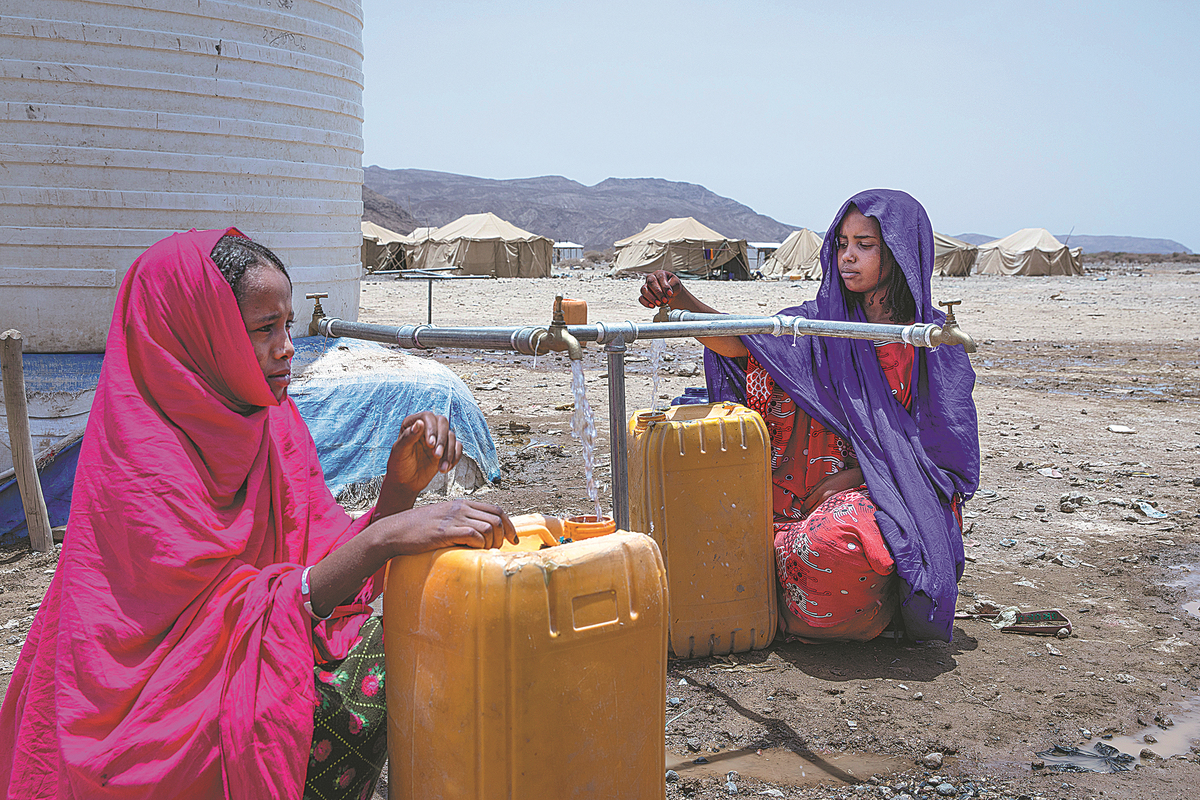Joint efforts stressed for food security
By MINLU ZHANG at the United Nations | CHINA DAILY | Updated: 2022-05-21 08:44

China's UN envoy also warns against weaponization of economic interdependence
China's top envoy to the United Nations on Thursday urged the international community to address the global food security challenge together, ensure diverse food supplies and stabilize the food market.
"Food security is first and foremost a top priority, as it relates to people's well-being and livelihood. It is also a long-standing challenge facing the international community,"Zhang Jun, China's permanent representative to the UN, told a UN Security Council open debate on conflict and food security.
"We need to stay calm and objective, take practical measures to holistically look at the food security issue, and address the bottlenecks and breakpoint of the supply chain in order to tackle the global food security challenge facing us all."
Zhang called on the international community to strengthen coordination and stabilize the global food market. "The current food crisis is caused by reduced supply, logistical disruption and in particular, rising prices," he said.
"To fill the supply gap, the international community needs to work together to seek diversified food supplies and maintain the smooth operation of agricultural trade internationally," he said, adding that "it is important to bring back to the international market agricultural products and fertilizers from Ukraine, Russia and Belarus.
"Weaponizing economic interdependence will only create man-made difficulties and amplify local risks,"Zhang said. "We call for speedy removal of the restrictions on food production and exports imposed by unilateral sanctions, so as to allow for a steady flow of food production and supply."
Zhang said that major food-exporting countries and countries with large food enterprises "have a shared responsibility to combat hoarding for profiteering purposes, limit financial speculation, instill stability and confidence in the market and bring under control the steadily rising food prices".
He said the international community also needs to promote a deep transformation and enhance the resilience of the global food system.
"Developed countries should reduce trade and technical barriers, give more help to developing countries in terms of funding, technology, market access and capacity-building," he said.
Top priority
Zhang said that China has always made food provision to its population a top priority in its national governance.
"With 9 percent of the world's arable land, we feed nearly one-fifth of the total global population. We have eliminated absolute poverty that has plagued the country for thousands of years," he noted.
The world today is facing multiple crises and "there is no greater crisis than the prevalence of hegemony and power politics, which poses serious challenges to international equity and justice", Zhang said.
UN Secretary-General Antonio Guterres, World Food Program Executive Director David Beasley and Director-General of the UN Food and Agriculture Organization Qu Dongyu also attended Thursday's meeting.
Armed conflict creates hunger, as fighting destroys farms and factories, drives people away from their harvests, causes shortages and drives up prices, said Guterres, noting that 60 percent of the world's undernourished people live in areas affected by conflict.
Guterres called for investment in political solutions to end conflicts and prevent new ones. "There is enough food for everyone in the world," he stressed. The issue is distribution, deeply linked to the conflicts in Ukraine, he said.
Beasley said the number of people heading toward starvation was 135 million before COVID-19. Because of the pandemic, the number rose to 276 million, then due to the conflicts in Ukraine, it further increased to 323 million, he said.
When a country like Ukraine, which provides food for 400 million people, is out of the market, it creates market volatility, said Beasley.
"When a nation that is the breadbasket of the world becomes a nation with the longest bread line of the world, we know we have a problem," he said.
Qu said: "Prosperity is being reversed (worldwide). There is less food security, less health security, less income and greater inequality."
























